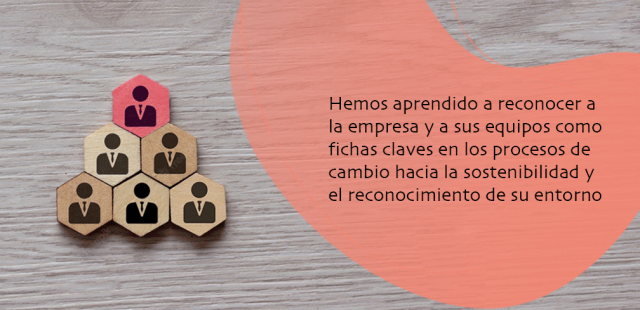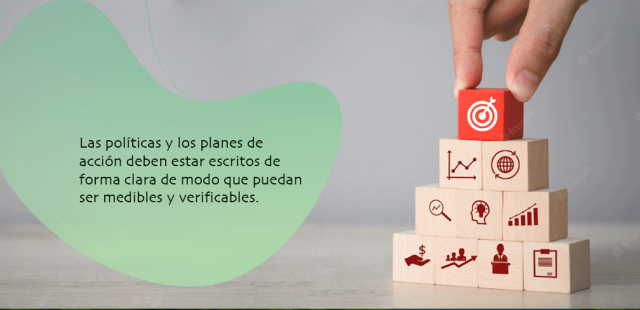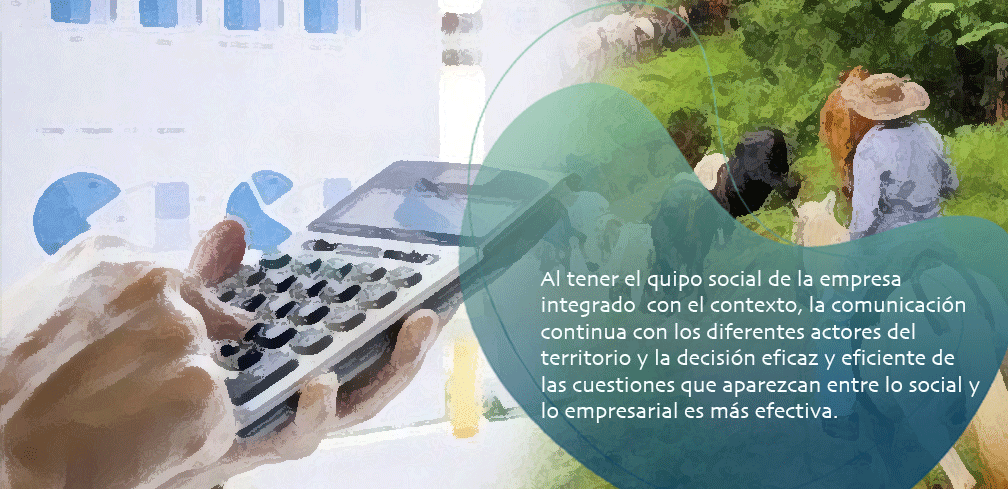During the last decades, there is no denying the important steps that companies have taken towards sustainability, steps that in many cases have been accelerated and respond, rather than to an obligation to the growing demands of society, to a conviction and responsibility towards the human and natural environment.
However, the constant social changes that seek more equitable, inclusive and respectful of the rights of others (understanding the other as people, entities and the environment), as well as the challenges of the planet to curb climate change and its devastating effects, have led to these actions being insufficient.
It was not enough the philanthropic sense that, as we have already pointed out extensively in the article "The evolution of social performance in 3, 2, 1... Where are we going?", published in this same space, was a model where the companies considered the actions they carried out more than the actions they took.áThe model was one in which companies considered their actions more as "a favor" in favor of the other, whom they saw as a third party in an inferior position. https://insightsocial.org/la-evolucion-del-desempeno-social-en-3-2-1-hacia-donde-vamos/,. Nor have the standards and policies been sufficient, which, although they have generated progress for organizations to recognize the other as a subject of rights and, therefore, as a valid interlocutor, continue to have a mandatory nature, which on many occasions has generated discomfort in companies, which have assumed them as obstacles for the development of the business.
While humanitarianism is not the raison d'être of a business, many companies have understood that, beyond a philanthropic action or compliance with a checklist of standards, connecting with the social environment is not the only way to achieve social responsibility. social environment y environment, and environmental surroundings, and aligning corporate interests with the interests of the community, represent great economic and social benefits. economic benefits These benefits translate into higher productivity, greater competitiveness, connection with reality, clearer perspectives, best practices and better reputation, to mention just a few.
How do we land it?
Sustainability is a process, it is not achieved overnight, it is not static, but very dynamic, therefore, it requires structure and the design of action plans, with indicators, measurements and adjustments. action plans, with indicators, measurements and adjustments.
It sounds challenging, and indeed it is. But you are not alone in the process. At InSight we have gathered the experience of our work in the 5 continents, to contribute to companies in the social aspect, from the intervention on three fronts:
- The structuring and preparation of social teams: Where we have learned to recognize the company and its teams as key players in the processes of change towards sustainability and recognition of their environment; starting with the first conception that they, as a company and as people too, are part of the same environment and as such wish to work in it; creating comprehensive roadmaps with individuals and communities of which we are all a part. In addition, supporting the social empowerment of the teams and delving into the aspects that they consider "to be improved", so that reaching a community is not a matter of distrust and becomes a face-to-face situation, giving way to technical and social work without trampling or ignoring the environmental, social and economic differences.

- The integration of the social area with the different areas of the business, and of the company with the context, we achieve by empowering the social team in their specific tasks, and by involving them in the company's social decision making process. To this end, we show the company the importance of having social teams not only as a source of information, but also as a team trained for strategic vision, immediate action and social conflict resolution. In the same way, having the social team integrated with the different areas of the business strengthens the integration of the company in the context of continuous communication with the different actors of the territory and the effective and efficient decision of the issues that appear between the social and the business. InSight contributes to this integration through the establishment of roadmaps and individual, business and community empowerment.
- The co-creation of a roadmap or action plan: At InSight we have understood, from experience, that policies and action plans must be written clearly so that they can be measurable and verifiable. With this in mind, we advise and work, in conjunction with the social teams, to create concrete action plans that help solve the social issues present in the context and that are transversal to both the company and the community. Creating the specific roadmapíThe specific roadmap is based on knowing and recognizing the environment in which we operate and, from there, working together with the different stakeholders to achieve actions that mediate and resolve the challenges and difficulties of the process quickly, effectively and efficiently.



